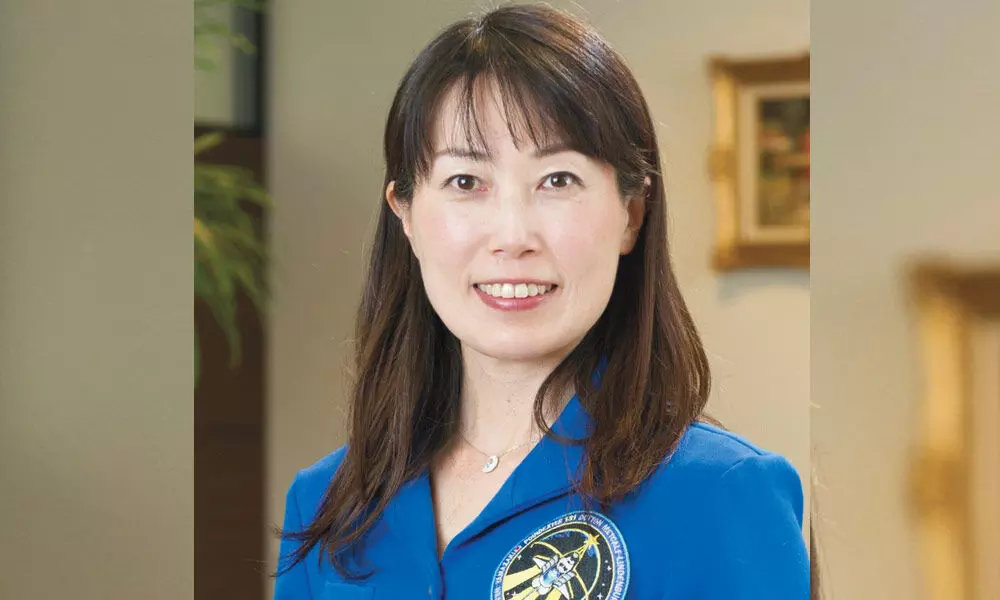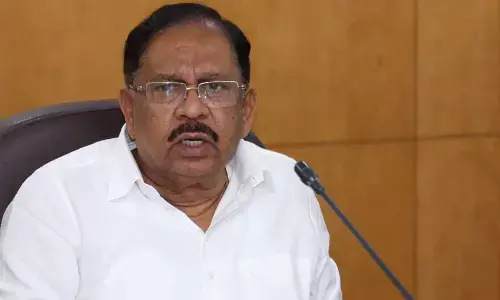International cooperation needed to reap space resources: Former astronaut

Astronaut Naoko Yamazaki
Sustainability is equally important in all of space and on Earth. What space exploration shows us is the depth of possibilities in the universe.
Bengaluru: "Sustainability is equally important in all of space and on Earth. What space exploration shows us is the depth of possibilities in the universe. What we have discovered so far is so tiny and there are a lot of unknowns. Knowledge on these unknowns is needed to expand our possibilities of survival, and they can't be discovered without international cooperation," said former JAXA astronaut and NASA mission specialist Naoko Yamazaki. She was speaking at India Japan Study Centre (IJSC) at IIM Bangalore's latest 'Tatsujin-Speak' webinar.
San at the one-hour virtual talk titled "#Space4SDGs; What Can Space Science and Technology Teach Us about Sustainability" Yamazaki said, "Since space is a common goal from where we are seeking common profits for the betterment of human beings, I believe it is equally important to form partnerships up in space just as we do on Earth in order to achieve international collaboration."
She further explained that in order to expand human frontiers, not only around the earth but to the moon or to Mars, we have to achieve a more self-sufficient recycling system. According to her, the International Space Station (ISS) is a good test-bed to develop these technologies. "For example, water is already being recycled. We collect all the water, including urine or sweat and turn it into drinking water. Same goes for the atmospheric air which is recycled as well."
However, the reality is far from perfect. She continued, "The current recycling ratio is not 100%, it is around 60% to 70%, therefore to raise that recycling ratio is the new target. It is impossible to wash clothes with water in space, so we keep wearing the same clothes for a couple of days, and when it gets dirty, we have to throw them away."
Currently, the electric power generated on board is achieved through solar panels and battery, Yamazaki explained. "But if we have to expand the frontiers till Mars, which is far away from the sun, the solar energy would get weaker and we have to find a different method," added Yamazaki San. Same goes for the food resources. Referring to the supply of food sourced and stocked from Earth for those aboard the ISS, she said. "We were working on experiments by growing food called the 'Space Veggie' and have succeeded in growing lettuce and soybeans. And since protein is a huge need for human sustenance in space, we have successfully cultured meat, up in space."
Pointing out to the visual of our blue planet captured by NASA, Yamazaki said that when we calculate the amount of water from all the sources on Earth, including rivers and glaciers, 97% of water on Earth is salty water while only 3% is pure water, which we share amongst 7.7 billion people in the world. "Earth itself is like a spaceship; resources are limited and we have to cooperate and share our resources. We are all crew members of this spaceship Earth. Now that traces of water have been discovered on the moon and on Mars (in the polar areas), space agencies all over the world are sending lunar explorers to take samples back for experimentations. The same goes for the moons of Jupiter and Saturn," she explained.
Responding to the long debate about the need for investing billions of dollars and other resources on space exploration, rather than spending it on the welfare of the masses, the astronaut said that this approach deserve consideration. However, she advised that space exploration expands human possibilities. "It is an investment for the future", she said pointing out the example of shopping giant Amazon's founder Jeff Bezos, who created his own aerospace company with the aim to send millions of people to space. "It is not because he wants to abandon the Earth; rather he wants to save the Earth by putting factories or power plants in space which can serve to lift a big burden off our Earth's environment."
Another example she gave on how space exploration can save Earth's environment is that of space mining. Yamazaki San spoke about how, just like some moons and asteroids have traces of water present, they also have some rare metals valued at billions of dollars, thus making space mining a possible research solution for saving our environment, "provided", she added, "we continue to maintain the balance between preservation and exploration".
















